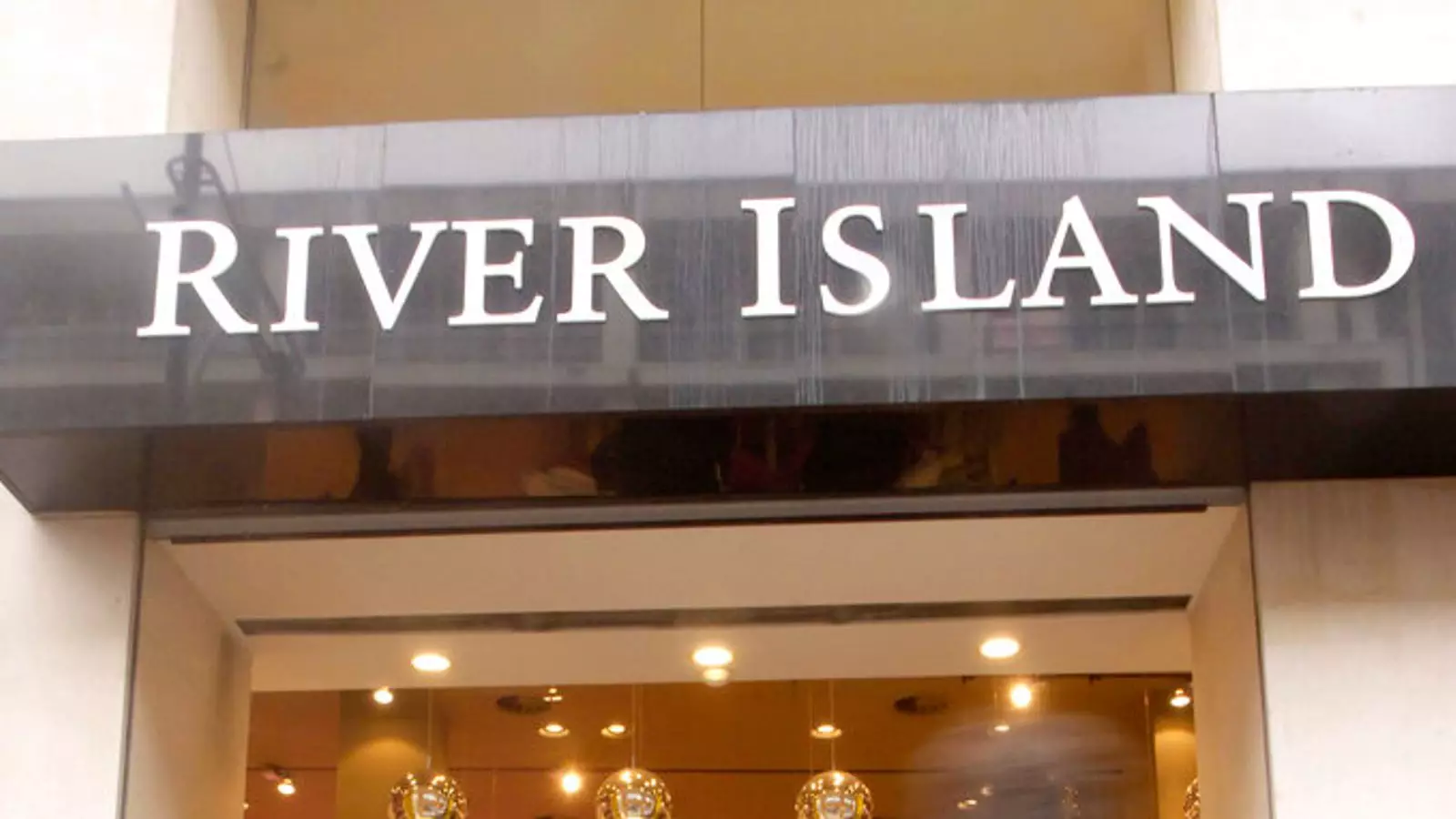River Island, a staple of British high street fashion for decades, now finds itself trapped in a turbulent storm of financial insecurity. The company, founded in 1948 by Bernard Lewis, boasts a unique heritage. It evolved from its initial branding of Lewis and Chelsea Girl to become the recognizable River Island we know today. As we draw closer to 2024, however, the weight of a staggering £33.2 million pre-tax loss looms ominously over the brand. With turnover plummeting by over 19% in the last year, one cannot help but wonder whether River Island is on the edge of a perilous abyss or poised for a reinvention that could save it from the chains of decline.
Restructuring: A Double-Edged Sword
The introduction of a formal restructuring plan raises numerous questions—not just about the fate of River Island, but about the overall viability of brick-and-mortar retail in the modern age. The enlistment of PricewaterhouseCoopers (PwC) signals a shift from mere crisis management to a full-scale reevaluation of the company’s business model. While restructuring can offer a lifeline, it often comes at a cost. Jobs will likely be lost, and stores may shutter. For a brand that employs approximately 5,500 people across its 230 stores, this impending transformation could be catastrophic on a personal level for many. With every closure, a unique local story is buried under the weight of corporate decisions driven by numbers rather than human connections.
It’s worth scrutinizing how this restructuring is framed as a necessary evil. This legal maneuvering is often just a bridge to avoid insolvency, allowing companies to renegotiate terms with creditors—but at what ethical cost? In a precarious economic environment riddled with uncertainties, businesses are forced to assess their survival with cold, calculative rationality, often overlooking the human element tied to each store closure.
The Retail Apocalypse: A Broader Context
The background of River Island’s plight reflects a broader phenomenon gripping the retail sector. The stark observation that traditional retail is fast losing ground to online shopping highlights a seismic shift in consumer behavior. Irrefutably, the pandemic accelerated these changes, empowering consumers with an insatiable desire for speed, variety, and convenience. Yet, rather than adapting successfully, many renowned brands seem to have resigned to a fate dictated by relentless competition and economic pressures—exemplified by rising inflation and supply chain nightmares that transcend mere financial issues.
Retailers like River Island must now navigate a minefield created by geopolitical events, increasing operational costs, and an increasingly strained consumer climate. The brand itself acknowledges these struggles, citing an ever-changing landscape that pressures them to innovate. The conventional wisdom of responsive customer service and increased foot traffic is overshadowed by dire statistics that reveal dwindling customer interest.
When Policy Meets Precarity
Political decisions also play a pivotal role in River Island’s challenges. Recent tax hikes introduced by Chancellor Rachel Reeves have elicited outrage within the retail sector, contributing to a wave of closures and calls for intervention. The frustration felt by retailers echoes through every corner of the economy, rallying businesses and political commentators alike to demand a reevaluation of policies that appear ill-suited for the realities businesses face today. Instead of fostering growth and adaptation, such policies may instead accelerate decline, leaving businesses like River Island grappling for survival in a hostile environment.
As popular chains face acquisition bids or even bankruptcy, we must ponder what it means for a nation proud of its high street heritage. Is River Island destined to fade into the annals of retail history, or can it harness its storied past to fuel a renaissance?
What is certain is that the ongoing saga of River Island symbolizes a decisive inflection point for not only the retailer but the entire high street landscape in Britain. As they tread cautiously through the financial maelstrom, it remains to be seen whether the solution lies in reinvention or resignation. The choices made in the coming weeks will shape the course of the brand and forever alter the retail experience as we know it.


Leave a Reply